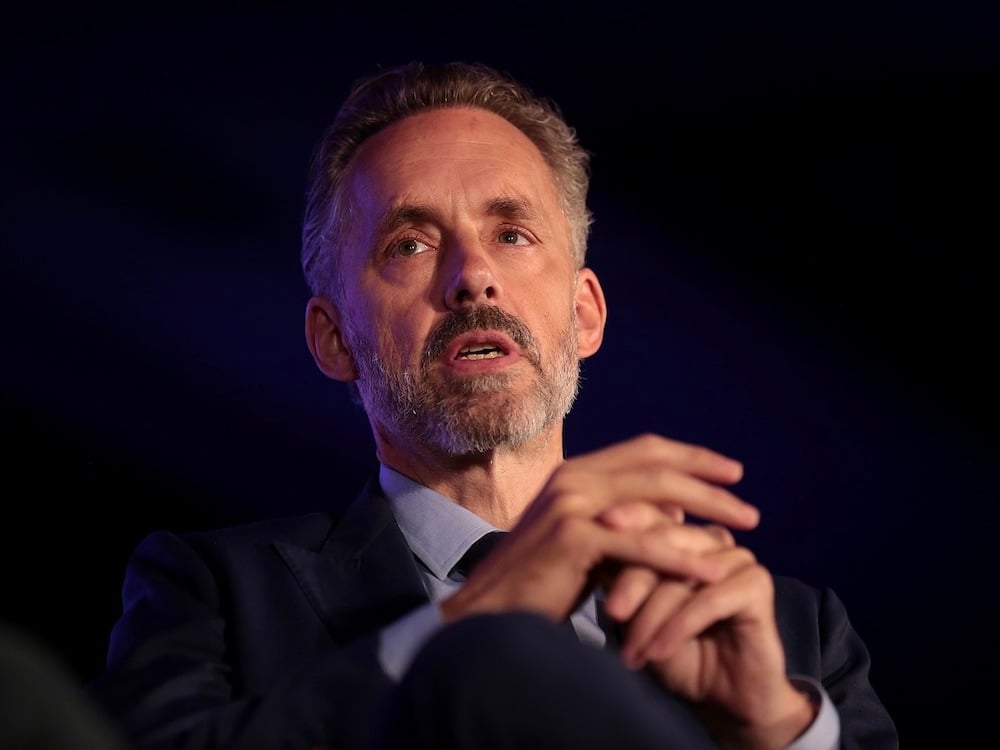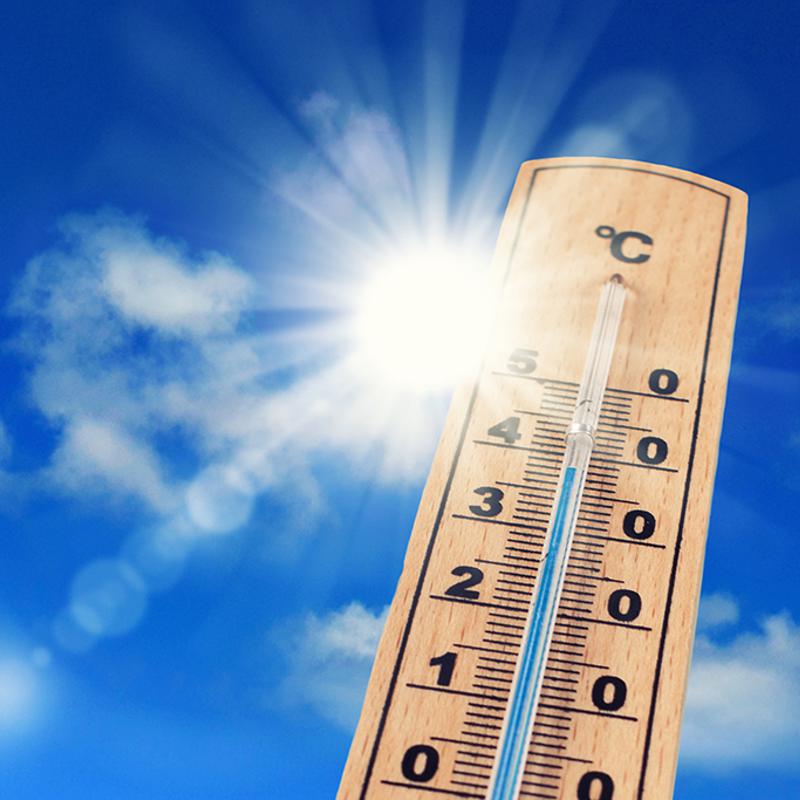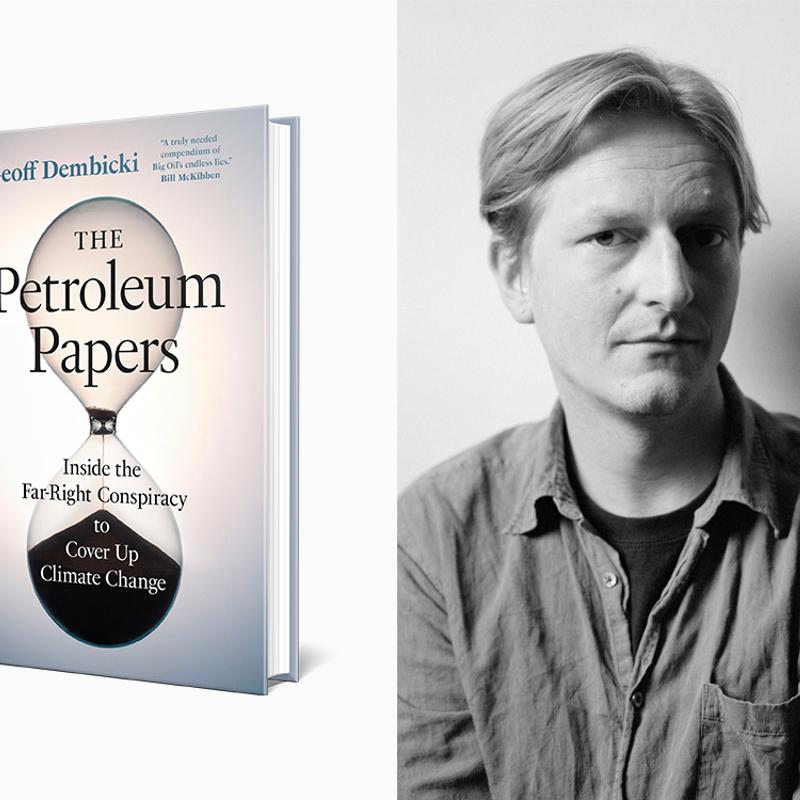Touting myths to millions is ‘highly irresponsible,’ say experts trying to avert disaster.
Geoff Dembicki
5 Sep 2022
TheTyee.ca
Geoff Dembicki reports for The Tyee. His work also appears in Vice, Rolling Stone and the New York Times.

Geoff Dembicki reports for The Tyee. His work also appears in Vice, Rolling Stone and the New York Times.

Peterson, who’s no climate scientist, questions models used by those
who are, and muses that global warming is ‘beneficial.’ Photo via Wikimedia.
In mid-August, Jordan Peterson uploaded a video for his more than 5.4 million YouTube subscribers in which he referred to the growing body of science linking extreme weather events to climate change as “dubious.”
Dressed in suit and tie and seated in an austere white room with the feel of a tech startup office, the Canadian celebrity conservative influencer claimed to take aim at the “globalist utopians” forcing us “to fall in line” in order to stabilize global emissions by 2050. That goal is widely regarded by scientists as crucial for avoiding the worst damages of climate change. But Peterson referred to it as “absolutely preposterous.”
The bulk of the video, which has more than 1.2 million views, consisted of Peterson reading verbatim an article he’d recently written for the Telegraph, a major British newspaper, headlined “Peddlers of environmental doom have shown their true totalitarian colours.”
The idea that “storms, wildfires, droughts, downpours and floods around the globe in the last 18 months are unique and unprecedented” is “a dubious claim,” Peterson said. And to the “power-mad utopians” pushing the supposedly false narrative of a climate emergency Peterson had this to say: “We will not allow you to steal and destroy the energy that makes our lives bearable.”
No one is out to make people’s lives unbearable by “stealing” energy from them, of course. The work being done by scientists, technologists and policy-makers to transition the global economy to conserve emissions-producing energy and shift to renewables in order to head off a climate catastrophe does invite a willingness to imaging how life can remain bearable by changing our ways.
The Tyee is supported by readers like you Join us and grow independent media in Canada
But bald denials of the climate crisis are increasingly rare in many mainstream media outlets. And as Peterson ramps up his naysaying, climate skeptics are delighted with the former University of Toronto psychology professor born in Alberta. A far-right U.K. website called the Conservative Woman deemed the publication of his recent essay “a first for the usually ‘conspiracy’-shy Telegraph,” and explained that Peterson was “expressing views which, to date, have been shared only on alternative social media outlets.”
Peterson in turn used his Telegraph story and the accompanying YouTube video to name and praise climate skeptics such as Matt Ridley, a journalist and conservative politician who earlier this year argued that climate change is “mostly beneficial” and that “this startling fact is kept from the public by a determined effort on the part of alarmists and their media allies who are determined to use the language of crisis and emergency.”
Trackers of climate disinformation said this potentially represents a worrying new phase in the climate crisis denial movement: skeptics who are increasingly struggling to be taken seriously by legacy media are now being exposed to millions of people via social media through their association with a celebrity conservative influencer from Canada.
“Through Peterson, who has a prominent voice, these other fringe voices are being lifted up,” Kert Davies, executive director of a U.S. research and watchdog group called the Climate Investigations Center, told The Tyee.
‘Truly irresponsible’
Actual climate scientists say it’s dangerous for Peterson, who didn’t respond to a list of questions from The Tyee, to be misleading the public at a time when we have less than a decade to halve global emissions or else risk crossing irreversible global tipping points such as the collapse of the Amazon rainforest.
“It is truly irresponsible,” Michael Mann, director of the Penn Center for Science, Sustainability and the Media at the University of Pennsylvania, told The Tyee. “And it betrays the fact that Peterson is nothing more than a right-wing disinformation artist.”
Earlier this year Peterson went on The Joe Rogan Experience, a podcast which has nearly 13 million followers on YouTube, and made rambling remarks about how the models used by climate scientists are flawed and incomplete.
“But your models aren’t based on everything,” Peterson told Joe Rogan. “Your models are based on a set number of variables. So that means you’ve reduced the variables — which are everything — to that set. But how did you decide which set of variables to include in the equation if it’s about everything?”
Climate scientists slammed the segment, with Mann saying at the time that “such seemingly-comic nihilism would be funny if it weren’t so dangerous.”
Yet climate crisis deniers were pleased that Peterson was taking their message to a mainstream audience. “Dr. Jordan Peterson has upset climate change alarmists by claiming on The Joe Rogan Experience that long-range climate models aren’t accurate,” recounted a U.S. website called Liberty Nation News, which has referred to the climate crisis as “hysteria.”
That article’s author Caroline Adana acknowledged Peterson was being “somewhat vague” in his criticisms of climate models, but that was likely because he “needed to adapt his language to the level of the average listener. If we compensate for these adaptations, he made valid criticisms that highly schooled and decorated climate skeptics have also raised.”
Indeed, as criticism mounted over Peterson’s comments, the former University of Toronto professor cited on Twitter one source for his views on climate change: a book titled Hot Talk, Cold Science: Global Warming’s Unfinished Debate by Fred Singer.
“Fred Singer was the grandfather of climate denial,” Davies told The Tyee.
The now deceased Singer was active for decades in campaigns to sow doubt and uncertainty about the science of climate change, including founding a disinformation hub in 1990 called the Science and Environmental Policy Project, which received funding from oil companies such as Shell and Exxon according to the climate disinformation watchdog group DeSmog.

A Conservative Grassroots Thick with Climate Crisis Deniers
In mid-August, Jordan Peterson uploaded a video for his more than 5.4 million YouTube subscribers in which he referred to the growing body of science linking extreme weather events to climate change as “dubious.”
Dressed in suit and tie and seated in an austere white room with the feel of a tech startup office, the Canadian celebrity conservative influencer claimed to take aim at the “globalist utopians” forcing us “to fall in line” in order to stabilize global emissions by 2050. That goal is widely regarded by scientists as crucial for avoiding the worst damages of climate change. But Peterson referred to it as “absolutely preposterous.”
The bulk of the video, which has more than 1.2 million views, consisted of Peterson reading verbatim an article he’d recently written for the Telegraph, a major British newspaper, headlined “Peddlers of environmental doom have shown their true totalitarian colours.”
The idea that “storms, wildfires, droughts, downpours and floods around the globe in the last 18 months are unique and unprecedented” is “a dubious claim,” Peterson said. And to the “power-mad utopians” pushing the supposedly false narrative of a climate emergency Peterson had this to say: “We will not allow you to steal and destroy the energy that makes our lives bearable.”
No one is out to make people’s lives unbearable by “stealing” energy from them, of course. The work being done by scientists, technologists and policy-makers to transition the global economy to conserve emissions-producing energy and shift to renewables in order to head off a climate catastrophe does invite a willingness to imaging how life can remain bearable by changing our ways.
The Tyee is supported by readers like you Join us and grow independent media in Canada
But bald denials of the climate crisis are increasingly rare in many mainstream media outlets. And as Peterson ramps up his naysaying, climate skeptics are delighted with the former University of Toronto psychology professor born in Alberta. A far-right U.K. website called the Conservative Woman deemed the publication of his recent essay “a first for the usually ‘conspiracy’-shy Telegraph,” and explained that Peterson was “expressing views which, to date, have been shared only on alternative social media outlets.”
Peterson in turn used his Telegraph story and the accompanying YouTube video to name and praise climate skeptics such as Matt Ridley, a journalist and conservative politician who earlier this year argued that climate change is “mostly beneficial” and that “this startling fact is kept from the public by a determined effort on the part of alarmists and their media allies who are determined to use the language of crisis and emergency.”
Trackers of climate disinformation said this potentially represents a worrying new phase in the climate crisis denial movement: skeptics who are increasingly struggling to be taken seriously by legacy media are now being exposed to millions of people via social media through their association with a celebrity conservative influencer from Canada.
“Through Peterson, who has a prominent voice, these other fringe voices are being lifted up,” Kert Davies, executive director of a U.S. research and watchdog group called the Climate Investigations Center, told The Tyee.
‘Truly irresponsible’
Actual climate scientists say it’s dangerous for Peterson, who didn’t respond to a list of questions from The Tyee, to be misleading the public at a time when we have less than a decade to halve global emissions or else risk crossing irreversible global tipping points such as the collapse of the Amazon rainforest.
“It is truly irresponsible,” Michael Mann, director of the Penn Center for Science, Sustainability and the Media at the University of Pennsylvania, told The Tyee. “And it betrays the fact that Peterson is nothing more than a right-wing disinformation artist.”
Earlier this year Peterson went on The Joe Rogan Experience, a podcast which has nearly 13 million followers on YouTube, and made rambling remarks about how the models used by climate scientists are flawed and incomplete.
“But your models aren’t based on everything,” Peterson told Joe Rogan. “Your models are based on a set number of variables. So that means you’ve reduced the variables — which are everything — to that set. But how did you decide which set of variables to include in the equation if it’s about everything?”
Climate scientists slammed the segment, with Mann saying at the time that “such seemingly-comic nihilism would be funny if it weren’t so dangerous.”
Yet climate crisis deniers were pleased that Peterson was taking their message to a mainstream audience. “Dr. Jordan Peterson has upset climate change alarmists by claiming on The Joe Rogan Experience that long-range climate models aren’t accurate,” recounted a U.S. website called Liberty Nation News, which has referred to the climate crisis as “hysteria.”
That article’s author Caroline Adana acknowledged Peterson was being “somewhat vague” in his criticisms of climate models, but that was likely because he “needed to adapt his language to the level of the average listener. If we compensate for these adaptations, he made valid criticisms that highly schooled and decorated climate skeptics have also raised.”
Indeed, as criticism mounted over Peterson’s comments, the former University of Toronto professor cited on Twitter one source for his views on climate change: a book titled Hot Talk, Cold Science: Global Warming’s Unfinished Debate by Fred Singer.
“Fred Singer was the grandfather of climate denial,” Davies told The Tyee.
The now deceased Singer was active for decades in campaigns to sow doubt and uncertainty about the science of climate change, including founding a disinformation hub in 1990 called the Science and Environmental Policy Project, which received funding from oil companies such as Shell and Exxon according to the climate disinformation watchdog group DeSmog.

A Conservative Grassroots Thick with Climate Crisis Deniers
READ MORE
Singer was among six “specialists” who spoke at a 2002 news conference in Ottawa, sponsored by Imperial Oil, whose stated goal was to debunk “climate change myths.”
These days it would be difficult to find a direct reference to Singer’s work, which has been thoroughly debunked by climate experts, in a mainstream media outlet. But after the Joe Rogan appearance, alarmed observers argued that Peterson was essentially repackaging Singer’s views for a massive digital audience.
Mega-influencer in an echo chamber
“This latest episode reveals a growing trend, whereby ‘non-climate influencers’ are becoming central nodes of mis- and disinformation for a mainstream public and exposing them to views which either deny the reality and impacts of climate change, or explicitly undermine trust in the science and institutions working to marshal a response,” Jennie King, head of civic action and education at the Institute for Strategic Dialogue think tank, told DeSmog.

Fact Checking Patrick Moore, Climate SkepticREAD MORE
This is the dynamic that such observers saw in Peterson’s recent Telegraph essay, which argued that “there are clearly more important priorities than costly and ineffective emergency climate change reductions.”
To bolster that point Peterson referred to the work of Bjorn Lomborg, a political scientist and economist who acknowledges that climate change is real but says it won’t be as bad as many scientists predict, arguing in 2021 that “rapid hyperbole scares us witless.”
Peterson also cited Marian Tupy, editor of the conservative website HumanProgress, which is a project of the Cato Institute, a think tank founded by Charles Koch. Last year Tupy said that climate change “is not an existential crisis.”
When a mega-influencer such as Peterson lends a platform to such fringe views, Mann argues, it has real world impacts on our ability to solve the climate crisis.

Come to Our Launch of Geoff Dembicki’s ‘The Petroleum Papers
Singer was among six “specialists” who spoke at a 2002 news conference in Ottawa, sponsored by Imperial Oil, whose stated goal was to debunk “climate change myths.”
These days it would be difficult to find a direct reference to Singer’s work, which has been thoroughly debunked by climate experts, in a mainstream media outlet. But after the Joe Rogan appearance, alarmed observers argued that Peterson was essentially repackaging Singer’s views for a massive digital audience.
Mega-influencer in an echo chamber
“This latest episode reveals a growing trend, whereby ‘non-climate influencers’ are becoming central nodes of mis- and disinformation for a mainstream public and exposing them to views which either deny the reality and impacts of climate change, or explicitly undermine trust in the science and institutions working to marshal a response,” Jennie King, head of civic action and education at the Institute for Strategic Dialogue think tank, told DeSmog.

Fact Checking Patrick Moore, Climate SkepticREAD MORE
This is the dynamic that such observers saw in Peterson’s recent Telegraph essay, which argued that “there are clearly more important priorities than costly and ineffective emergency climate change reductions.”
To bolster that point Peterson referred to the work of Bjorn Lomborg, a political scientist and economist who acknowledges that climate change is real but says it won’t be as bad as many scientists predict, arguing in 2021 that “rapid hyperbole scares us witless.”
Peterson also cited Marian Tupy, editor of the conservative website HumanProgress, which is a project of the Cato Institute, a think tank founded by Charles Koch. Last year Tupy said that climate change “is not an existential crisis.”
When a mega-influencer such as Peterson lends a platform to such fringe views, Mann argues, it has real world impacts on our ability to solve the climate crisis.

Come to Our Launch of Geoff Dembicki’s ‘The Petroleum Papers
’READ MORE
“As a result of the denialist echo chamber, people tend to perceive that a far greater proportion of the public denies climate change than actually does,” he writes in his recent book The New Climate War. “That flawed perception, in turn, inhibits people from engaging their friends, neighbours and acquaintances on climate.... The less we talk about the issue, the less prominent it is in our larger public discourse, and the less pressure that is brought to bear on policy-makers to act.”
Peterson isn’t primarily known for his reactionary views on the climate crisis. But Mann argues it’s about time the public sees him for what he truly is — the latest in a long line of skeptics delaying society’s response to a crisis that is only getting worse and worse.
“He is promoting climate change denial at a time when it is increasingly untenable,” Mann said.
“As a result of the denialist echo chamber, people tend to perceive that a far greater proportion of the public denies climate change than actually does,” he writes in his recent book The New Climate War. “That flawed perception, in turn, inhibits people from engaging their friends, neighbours and acquaintances on climate.... The less we talk about the issue, the less prominent it is in our larger public discourse, and the less pressure that is brought to bear on policy-makers to act.”
Peterson isn’t primarily known for his reactionary views on the climate crisis. But Mann argues it’s about time the public sees him for what he truly is — the latest in a long line of skeptics delaying society’s response to a crisis that is only getting worse and worse.
“He is promoting climate change denial at a time when it is increasingly untenable,” Mann said.

No comments:
Post a Comment